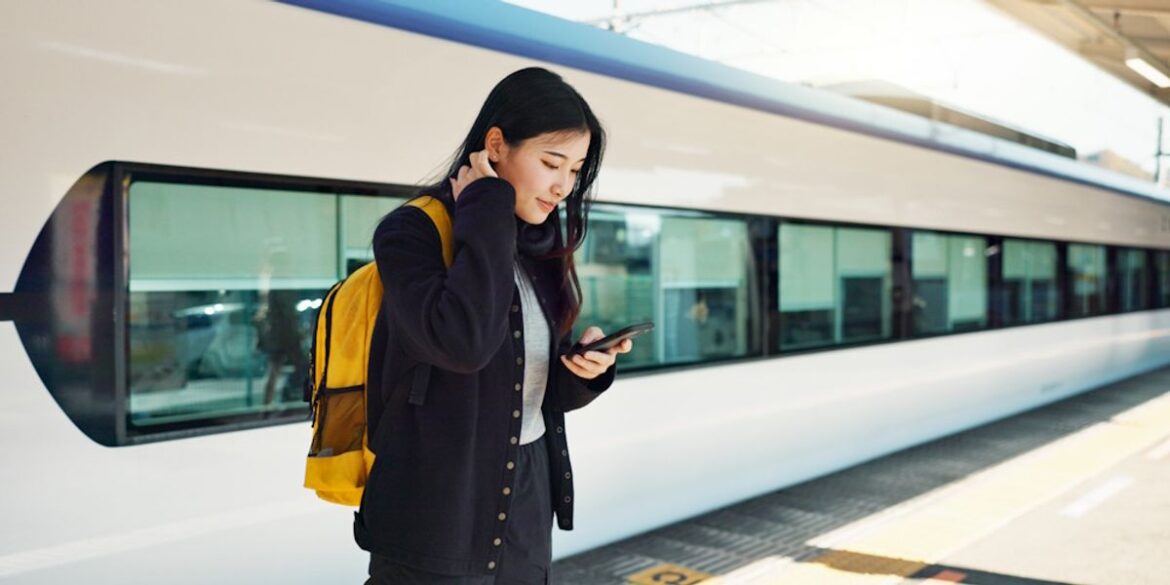When punk rocker-turned-founder of Reiwa Travel Takaya Shinozuka met the team at artificial intelligence (AI) investment fund PKSHA Technology, sparks didn’t just fly—they lit the fuse for a bold experiment in reimagining Japan’s online travel landscape.
At WiT Japan & North Asia 2025, the entrepreneur, on his second travel startup after his exit from Relux, shared the stage with Takashi Maeda, partner at PKSHA Technology, to talk about how their collaboration—a resilient online travel agency (OTA) disruptor joining forces with an AI venture builder—signals a new phase for tech-led travel innovation in Japan.
The partnership, which saw PKSHA investing in Reiwa Travel’s $33m fund raise last September, goes beyond capital. It’s a strategic alignment between two forces determined to rewire how travel is booked, experienced and served.
“There’s no such thing as an easy fundraise,” said Shinozuka. “But we agreed on one thing—we wanted to send a clear message: We will invest in AI technologies—not just talk but actually do.”
Get a dose of digital travel in your inbox each day
Subscribe to our newsletter below
Maeda, whose firm cut its teeth on AI-driven tools for parking systems, chatbots, and fraud detection, called it “our first travel investment—and we’re excited.” PKSHA started 13 years ago building backend machine learning systems but recently pivoted toward user experience, betting that generative AI has moved the frontier from infrastructure to interface.
“Japan’s big companies are finally not just talking about AI but applying it, especially since generative AI made decades of archived documents suddenly usable,” said Maeda. “And with our ageing and shrinking population, those ‘sleeping assets’ are now strategic gold.”
For Reiwa Travel, that shift aligns perfectly with their three-pronged AI approach:
AI literacy as a must-have skill, akin to knowing how to use Excel or WordEmbedding AI into internal systems to eliminate manual drudgeryExperimenting with UI/UX to discover the new customer experience frontier
“It’s not just about tools,” said Shinozuka. “It’s about figuring out the new interface that AI demands—just like we didn’t know what a smartphone tab would be until iOS showed us.”
And while Reiwa draws inspiration from leaders like TripGenie, Shinozuka knows that true differentiation lies not in mimicking others but in mastering their own customer signals. “AI can replicate a front-end. But what it can’t replicate are your partnerships, your data, your brand trust—those things take years to build.”
Both agree it’s not about which model wins—ChatGPT, Gemini, LLaMA or DeepSeek. “Customers don’t care which engine powers the AI,” Maeda said. “What matters is the experience they get. Will it help them navigate local customs? Will it answer hotel FAQs without needing a call center? That’s the bar.”
Shinozuka offered examples already live: AI-powered customer service for repetitive questions, intelligent itinerary suggestions based on booking behavior and recommender systems that nudge users toward relevant next trips.
Maeda, for his part, offered his perspective as a traveler: “What if AI could tell me what not to do in a country? Like which gesture is rude in this culture? Or why I should carry two wallets when I visit that city?” That kind of contextual travel intelligence is what he believes will truly shift the needle.
The final word? It’s not just about building the next OTA. It’s about building the next generation of talent.
“AI used to be for engineers,” said Maeda. “Now, anyone with domain expertise can create with it. The real AI talent pool is everyone in the market. Once people get that mindset, Japan can move fast.”
As for Shinozuka, when asked what Green Day song would define his startup journey, he grinned: “‘Minority.’ Because travel teaches you most when you’re the outsider.”
This story originally appeared on Web in Travel.


AloJapan.com